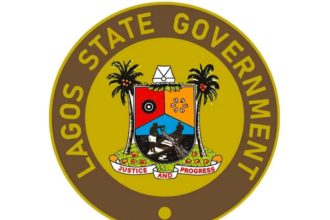Russia did not violate any international law by recognising the separatists- Donetsk and Luhansk- which the West and many of us still see as part of (Eastern) Ukraine.
It also did not violate any international law by sending troops to the separatist “states”. I call them “states” because that is what they are as it is.
ATTENTION: Click “HERE” to join our WhatsApp group and receive News updates directly on your WhatsApp!
There are two issues here: one is “the right to and of statehood” while the other is “the support for one state (two states as in this incidence) by another”; collective self-defence.
For the first, that is, the right to and of statehood, the requirement of Montevideo Convention (1934) is clear on statehood.
Article 1 of the Convention stipulates the criteria required of a state and they are (in no order), population, government, territory and the ability to enter into a relationship with another in the international community.
Breaking these down just a little, there is no requirement for what a state’s population should be like therefore, it does not matter whether there are 1000 people in a given state or whether they are 1 billion people.
More so, there is no requirement for that population to be constant. As for government, of course, there is no society without a political system (and it does not matter what kind of political system it is) so, it is a given that these separatists have governments since it is public knowledge that Ukraine has not governed them since they declared independence around 2014.
As for territory, these entities have claimed and controlled their territories; what we still call “Eastern Ukraine” so, they have their territory covered. It would also be nice to point out that there is no requirement in international law for a state’s territory to be “cast iron”.
Ukraine President, Volodymyr Zelensky and Russian President, Vladimir Putin
Now the ability to enter into alliance in the international community. This is what is referred to in the international system as “recognition”.
This is highly political consequently, many commentators argue that it is not an ingredient of statehood (and I tend to align with them) however, these “states” in question have been able to also enter into such alliance (agreement) with Russia so, what can we say?
We recall that these entities (states) declared independence from Ukraine around 2013/14. They have not been administered by Ukraine since then. We can call them Russian proxy states but that is what most states in the international community are.
For instance, the UK does not do anything without consulting with the US; remember the unlawful Second Iraqi Invasion?
I hold that Russia did not violate the principles of international law because these “independent states” have technically invited Russia to assist them from “external aggression”; yes, Ukraine and NATO are “threatening them” therefore, the next thing to be done is “rest” on Article 51 of the Charter.
There are three kinds of “defence” recognised by the UN Charter; it must be known that the UN Charter is the most authoritative instrument in the international community and anything that did not vitiate it is lawful.
Like I said, there are three kinds of defence in the international community. These are “self-defence”, “collective self-defence” (both authorized in Article 51) and “collective security” (authorized in Article 39).
Article 2(4) of the UN Charter prohibits any form of unfriendliness from one state to another however, Article 51 stipulates the inherent right of individual and/or collective self-defence.
What is self-defence and/or collective self-defence in international law one may ask? Self-defence like the right to life is the non-negotiable right to react when attacked or there seem to be a “pre-emptive attack” (pre-emptive attack is still very debateable).
Consequently, a state in the international community “combats” attacks directed to it. Collective self-defence comes in where a state is unable to match the “attack” hence, calls on its “neighbour(s)” to assist.
This is what it could be said that Donetsk and Luhansk have done by “inviting” Russia just as Kuwait invited the US, UK and others in the early 90s.
The West understands this just as they do with the unlawful Second Iraqi Invasion yet they want to give the dog a bad name in order to hang it because of their interest in Ukraine.
Russia on its own understand this too and would not want Western influence next door as such violate Article 2(4).
As said above, these “sovereign states” we still see as “Eastern Ukraine” have declared independence and Ukraine has not been able to administer them since their declaration in 2014. The fact is that the West wants to have Ukraine as its station to “monitor” Russia hence may want to toe the unlawful line of the Second Iraqi Invasion.
What is NATO looking for if not hegemony? Is there no need for a balance? Why support Taiwan against China and not Donetsk and Luhansk? Remember that the West sponsored separatists’ movements in Sothern Russia in the 90s and early 2000s? Why be for one yet against the other?
Like defunct Biafra that was a sovereign state notwithstanding that it was short-lived, Donetsk and Luhansk are sovereign entities today until this position is quashed by Ukraine and its allies just as the defunct Biafra. Until then, Russia has not violated any principle of international law.
Disclaimer: The views and opinions expressed here are those of the author and do not necessarily reflect the official policy or position of Daily Report Nigeria


